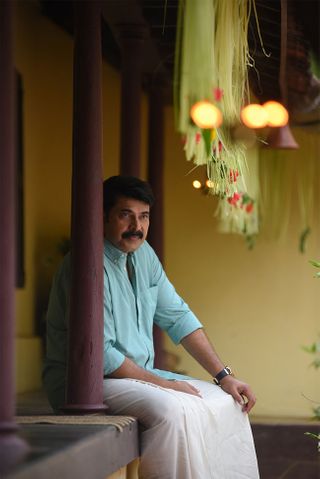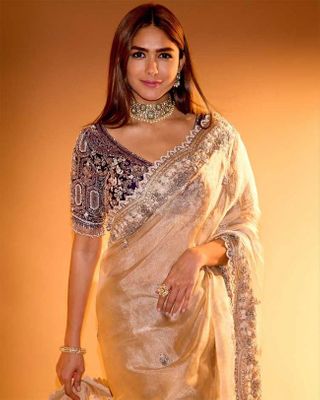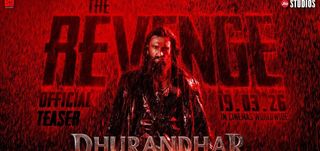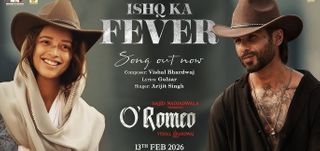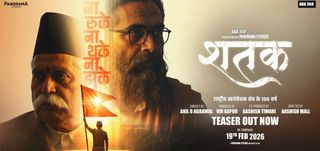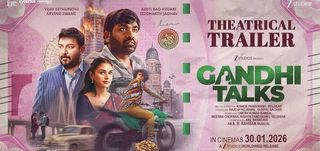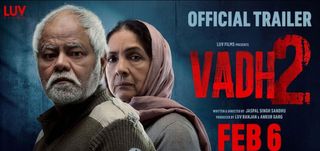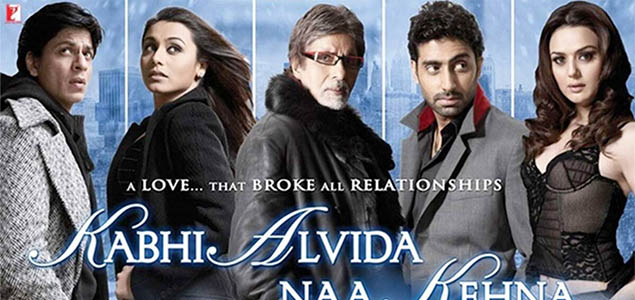
Kabhi Alvida Naa Kehna Movie Review
- Magnificent sets
- Intricate art design
- Designer costumes
- Eye-pleasing visuals
- Loads of celebrations
- A bhangra track with bikini babes
- Feel-good factor
- Trademark Shahrukh Khan
- Complimentary Kajol fluttering sari for a 5 second song appearance
- Predicted houseful openings
“Kabhi Alvida Naa Kehna” (KANK) has all the regular contents of a Karan Johar extravaganza. Plus a story this time!
In 1981, Yash Chopra made “Silsila” on extra-marital affairs that was considered ahead of its times. The culmination of its theme, however, was as per the Indian sensibilities of those times. 25 years later, Karan Johar makes a film on extra-marital affairs (I am not drawing any parallels between the two films whatsoever) and the culmination of the plot makes it the so called ‘different’ or a ‘bold’ film.
A bold film is not about sex, skin or sleaze. It’s about matured mindsets and moving ahead with times. Karan also moves ahead with KANK. In terms of its plot outlines, while “Kuch Kuch Hota Hai” was an overrated triangular love story and “Kabhi Khushi Kabhie Ghum” was just another conventional family drama, “Kabhi Alvida Naa Kehna” has a comparatively sensible and substantial story to back the candy floss on the screen.
The story, as everybody and their second cousin by now know, is about an extra marital affair. Dev (Shahrukh) and Rhea (Preity Zinta) are getting incompatible in their marital bonding. Rishi (Abhishek) and Maya (Rani Mukherjee), over the time, find that the flame in their marriage is dissipating. And that’s when Dev falls for Maya and the relationship that just starts casually ends up into an extra marital affair.
The visual appeal in a Karan Johar film is, like always, intricate and immaculate. Be it Anil Mehta’s eye-pleasing camerawork, Sharmista Roy’s appealing art design, Manish Malhotra’s fashion fiesta or Farah Khan’s cosmic choreography, everyone is just perfect in their department.
But as I earlier said, apart from the visual dazzlers, the movie clicks because it has something to say in which it succeeds. Karan always had heart in his films; here he puts in a lot of soul too. Shibani Bhatija, who earlier wrote the overrated “Fanaa” this year, co-writes a more cohesive, convincing and a satisfying screenplay for KANK with Karan Johar. The comic scenes are very well written while the emotional ones are deftly acted and executed. Dialogues vary from the tongue-in-cheek lines in the lighthearted scenes to the regular ones in the emotional outbursts. Niranjan Iyenger’s witty one-liners compliment the funny scenes without a glitch.
Also the screenplay balances the bittersweet act and maintains the equilibrium. While a Karan Johar film is broadly envisaged as a compulsive tearjerker, KANK has sufficient light-hearted frivolous relief in the first half. The scene where Rani Mukherjee tries to impersonate a BDSM girl is outrageously hilarious. If you go to compare KANK with Karan’s earlier works, the tone of the film is more like a “Kal Ho Naa Ho” (which was written by Karan) as compared to his overdramatic first two directions. In fact what sets the film apart from the daily soaps on the idiot box (each one of which is based on an extra-marital affair) is that the performances never get overtly melodramatic even in the emotional outbursts.
The pace is slow and the movie does get stretched in the second half. The conclusion could have been impermeable to the audiences’ mentality but the screenplay has enough conviction to make it digestible. And while Karan took excuses of the bhartiya sanskriti and parampara in his first two films, here thankfully he stays free from the culture crap and sanskaar endorsements. On the contrary, KANK strides against the cliches in culture to make its own way. And the best part is that it doesn’t do this blatantly.
Of course while going off-route, there are some elements where he arguably takes the fast-forward path. Like Amitabh Bachchan’s chara
OTHER REVIEWS
Read Full Review








